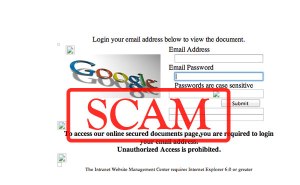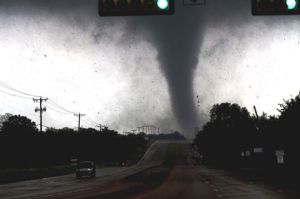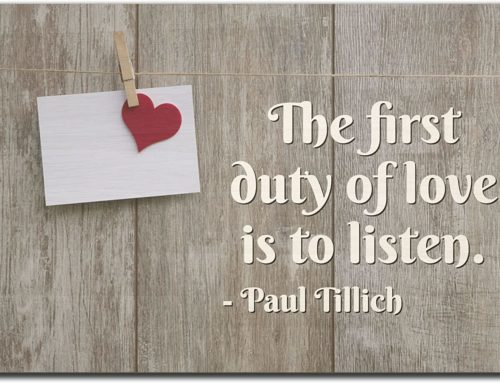Earlier this week a tornado swept through Oklahama, killing a number of people and leaving a mass of devastation in its wake.
Within a couple of hours of the disaster, well-known speaker and author John Piper tweeted this verse:
“Your sons and daughters were eating and a great wind struck the house, and it fell upon them, and they are dead.” Job 1:19
There was a huge uproar about it.  How could this public figure and follower of Jesus be so insensitive, especially in the face of all those families who had lost love ones. People started retweeting, blogging, statusing and having conversations about what an evil act John Piper had committed.
How could this public figure and follower of Jesus be so insensitive, especially in the face of all those families who had lost love ones. People started retweeting, blogging, statusing and having conversations about what an evil act John Piper had committed.
Only problem [which I found out a couple of hours after hearing the initial story and having my own emotional response] is that there were two tweets that were released simultaneously and the second one was the following verse in Job which reads like this:
“Then Job arose and tore his robe and shaved his head and fell on the ground and worshiped.” Job 1:20
‘Job 1:20 not only comes in the direct aftermath of a storm, but also holds out hope and comfort to Christians directly affected by tragedy today, reminding us that trust in God and worship of God are always right, even when we are kneeling in tears in the rubble left by a tornado. Job wept and he worshipped. God’s sovereignty over his suffering provided the basis of his grounds of worshipping God in the suffering.’ [from the blog post ‘Those Deleted Tweets’ by Tony Reinke]
Huge problems can arise when we share information that is true [John Piper did tweet Job 1.19] but is not the Truth [it was not the full story – something was taken out of context to produce a message vastly different than that which was intended]. And it caused [or maybe more accurately ‘influenced’] a lot of judgement and condemnation from a whole bunch of people [thousands] who were given falsified information.
= = = = = = = = = = = = = = = = = = = = = = = = = = = = = = = = = = =
‘In 1897 a journalist was sent to inquire after Twain’s health, thinking he was near to death; in fact it was his cousin who was very ill. Though (contrary to popular belief) no obituary was published, Twain recounted the event in the New York Journal of 2 June 1897, including his famous words “The report of my death was an exaggeration” (which is usually misquoted, e.g. as “The rumours of my death have been greatly exaggerated”, or “Reports of my death are greatly exaggerated”)’ [from Wikipedia]
This has happened a lot in recent years.
Bill Cosby and Eddie Murphy both fell victim to internet death report hoaxes, as did Adele, Hugh Hefner and Oprah. Tom Hanks and Tom Cruise [both deemed to have fallen off the same Kauri Cliffs in New Zealand while climbing, in 2006 and 2008 respectively] met with the same treatment, while ‘RIP Justin Bieber’ was trending on Twitter last year
Two other high profile cases of getting it horribly wrong were these:
Margaret Thatcher: Text-message reports of Baroness Thatcher’s death caused a stir at a Canadian political event, and officials in Prime Minister Stephen Harper’s office were preparing to issue a statement of condolence, until it was determined that the deceased Thatcher in question was actually Transport Minister John Baird’s cat [She died earlier this year, on 8 April 2013.]
As early as 1992, and I remember hearing these when they came out, widespread rumors circulated that falsely claimed singer Bobby McFerrin committed suicide. The rumors intentionally made fun of the distinctly positive nature of his popular song “Don’t Worry, Be Happy” by claiming McFerrin ironically took his own life.
= = = = = = = = = = = = = = = = = = = = = = = = = = = = = = = = = = =
Forward this message and Bill Gates will give you $5000, Steve Jobs will give you the latest Apple computer and [insert store name here] will give you a FREE voucher for [insert amount of money here].
Do you know anyone personally who ever got the money, the computer or the brand clothing? You don’t because they do not exist.
In September last year I wrote a fictitious reply to the Nigerian widow who had given me $2,000,000,000,000,000 of the money her dead president/king/minister of this government department had left to her [as the only means by which she could get it into the country – for some reason it had to pass through the bank account of someone who had never heard of her before?] which you can read here. All very funny until I heard from one of my very close friends [who is not an idiot] who had followed up a similar request and sent some details because of the whole “what if it is true?” lure. And so these things are really catching people.
= = = = = = = = = = = = = = = = = = = = = = = = = = = = = = = = = = =
‘That person you’re sharing a quote from on the internet, alongside the picture of them, may not have even said what you’re saying they said.’ [Abraham Lincoln, 1855]
= = = = = = = = = = = = = = = = = = = = = = = = = = = = = = = = = = =
 The list goes on. From the simple consequences of giving out personal details and inviting a deluge of spam, to causing grief or major concern to family and friends when a death rumour goes viral, to the very possibility of character and ministry assassination that can occur, this is not to be taken lightly. We need to be more responsible with how we handle information or the appearance of information.
The list goes on. From the simple consequences of giving out personal details and inviting a deluge of spam, to causing grief or major concern to family and friends when a death rumour goes viral, to the very possibility of character and ministry assassination that can occur, this is not to be taken lightly. We need to be more responsible with how we handle information or the appearance of information.
And it is for the most part quite simple. Whenever I see something offered for FREE on Facebook or when I heard news of something so huge it seems unbelievable or if there is cause for the slightest bit of doubt with any new piece of information I receive and am thinking of passing on, I go to Uncle Google and type in the words of the thing [eg. Bill Gates free laptop] and the word ‘Hoax’ or ‘Scam’ and it is usually quite easy and quick to see whether it is or not. It is that easy. I doubt you will catch it every time but for the most part this simple practice will have your back and will save you embarrassment and the possibility of fueling an unnecessary fire.
In this world of rapid information and the viral forwarding of it [through retweets and status updates, likes and shares] it requires us to be a lot more aware and alert. Otherwise we quickly become part of the problem.
And in case you’re not completely convinced yet, here is some extra reading to give you a more clear idea of what I am speaking about:
[1] Titled ‘Top 15 Hoaxes of All Time’ this article lists a number of the popular Facebook and beyond stories that caught a lot of people.
[2] This more Facebook related one details ‘Top 10 scams and hoaxes on Facebook you should recognise in 3 seconds.’
How about it? Have you ever been caught out by one of these false stories floating around the web? Have you passed something on that you later found out was fake?








Leave a Reply